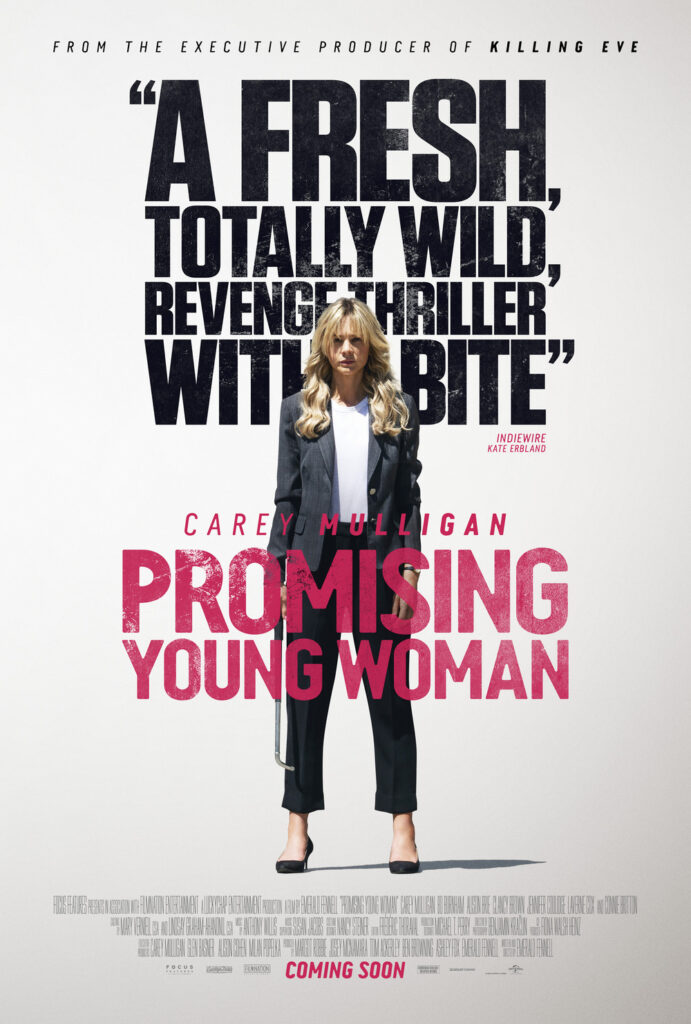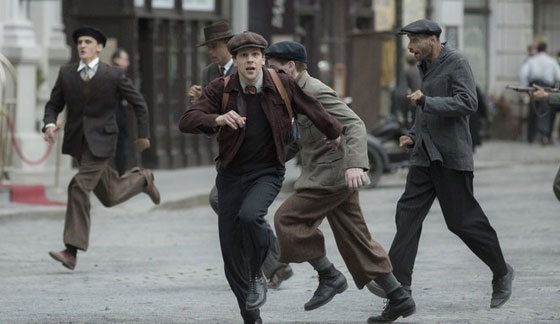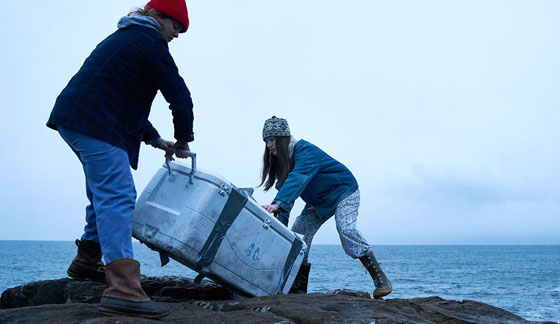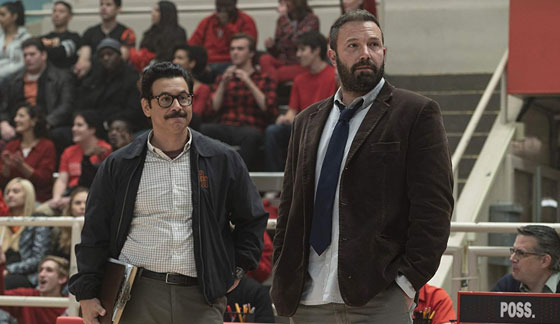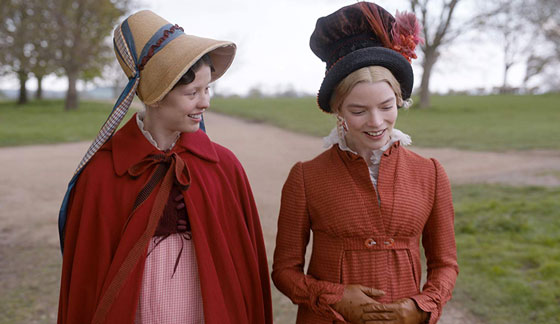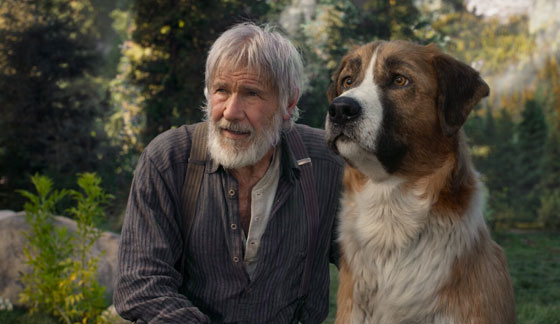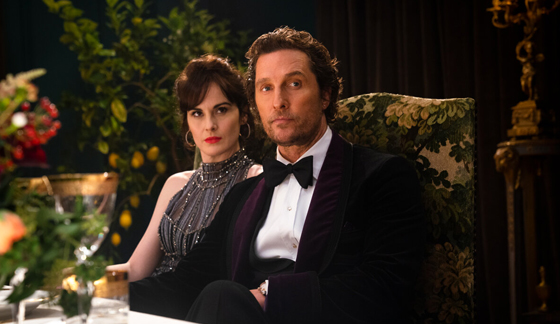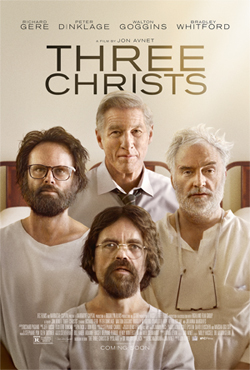- PROMISING YOUNG WOMAN
- Starring: Carey Mulligan, Bo Burnham
- Directed by: Emerald Fennell
- Rating: Rated R
- Running Time: 1 hr 53 mins
- Focus Features
Former Academy Award nominee Carey Mulligan (“An Education”) delivers the performance of her career in the inventive crime drama “Promising Young Woman.” Written and directed by British actress Emerald Fennell, “Promising Young Woman,” which marks Fennell’s first attempt as the creative force behind a feature length film, is a well-crafted tale of revenge by a woman scarred by the tragic loss of her best friend.
The night is getting late at a local bar where three single men spot Cassandra “Cassie” Thomas (Mulligan) sitting alone at a booth. She appears to be so drunk that she cannot sit up or see straight. The supposed “nice guy” of the three jumps in to save her but betrays who he pretends to be by taking Cassie to his apartment where he attempts take advantage of her. Much to his shock and fear, Cassie suddenly reveals she has been faking inebriation. What she does to him exactly we do not know, but we do see her make a mark in a ledger she keeps that also contains the names of predatory men she has turned the tables on.
We soon learn that 30-year-old Cassie lives with her parents (Jennifer Coolidge, “2 Broke Girls” and Clancy Brown, “The Shawshank Redemption”) and that she has worked at a coffee shop ever since she dropped out of medical school several years earlier. Her decision came in the wake of her best friend, Nina being raped in school and no one believing her, which ultimately led to her friend’s suicide. Cassie is clearly a broken soul full of rage against most of humanity, especially anyone male excepting her doting father.
During the process of going after those who she most blames for her best friend’s death, Cassie meets Dr. Ryan Cooper (Bo Burnham, “The Big Sick”), a former medical school classmate who awkwardly asks her out on a date. Things move slowly at first, but a romance does unexpectedly develop. It goes so well, that Cassie decides to move on with her life, especially after a conversation with Nina’s mother. However, a ghost from the past reveals an old bit of information that turns the story on its head.
“Promising Young Woman” made its world premiere on January 25, 2020 at the Sundance Film Festival but its release had to be postponed until this past Christmas weekend thanks to COVID-19. Except for a couple of brief, poorly done supporting performances near the climatic end, the cast surrounding Mulligan does a solid job with the script and Fennell keeps us wondering where exactly she is going to take us. The material is dark yet remains engrossing.
Film review: “Promising Young Woman”Starring: Carey Mulligan, Bo BurnhamDirected by: Emerald FennellRating: Rated RRunning Time: 113 minutesFocus Features Former Academy Award nominee Carey Mulligan (“An Education”) delivers the performance of her career in the inventive crime drama “Promising Young Woman.” Written and directed by British actress Emerald Fennell, “Promising Young Woman,” which marks Fennell’s first attempt as the creative force behind a feature length film, is a well-crafted tale of revenge by a woman scarred by the tragic loss of her best friend. The night is getting late at a local bar where three single men spot Cassandra “Cassie” Thomas (Mulligan) sitting alone at a booth. She appears to be so drunk that she cannot sit up or see straight. The supposed “nice guy” of the three jumps in to save her but betrays who he pretends to be by taking Cassie to his apartment where he attempts take advantage of her. Much to his shock and fear, Cassie suddenly reveals she has been faking inebriation. What she does to him exactly we do not know, but we do see her make a mark in a ledger she keeps that also contains the names of predatory men she has turned the tables on. We soon learn that 30-year-old Cassie lives with her parents (Jennifer Coolidge, “2 Broke Girls” and Clancy Brown, “The Shawshank Redemption”) and that she has worked at a coffee shop ever since she dropped out of medical school several years earlier. Her decision came in the wake of her best friend, Nina being raped in school and no one believing her, which ultimately led to her friend’s suicide. Cassie is clearly a broken soul full of rage against most of humanity, especially anyone male excepting her doting father. During the process of going after those who she most blames for her best friend’s death, Cassie meets Dr. Ryan Cooper (Bo Burnham, “The Big Sick”), a former medical school classmate who awkwardly asks her out on a date. Things move slowly at first, but a romance does unexpectedly develop. It goes so well, that Cassie decides to move on with her life, especially after a conversation with Nina’s mother. However, a ghost from the past reveals an old bit of information that turns the story on its head. “Promising Young Woman” made its world premiere on January 25, 2020 at the Sundance Film Festival but its release had to be postponed until this past Christmas weekend thanks to COVID-19. Except for a couple of brief, poorly done supporting performances near the climatic end, the cast surrounding Mulligan does a solid job with the script and Fennell keeps us wondering where exactly she is going to take us. The material is dark yet remains engrossing. Mulligan is nothing short of spectacular in a role that requires her to dwell in a painful place filled with darkness and anguish. She deftly switches between her character’s wide-ranging emotions with the ease of someone who has become an expert at their craft. Mulligan is nothing short of mesmerizing as she elevates “Promising Young Woman” to a different level.
She deftly switches between her character’s wide-ranging emotions with the ease of someone who has become an expert at their craft. Mulligan is nothing short of mesmerizing as she elevates “Promising Young Woman” to a different level.


